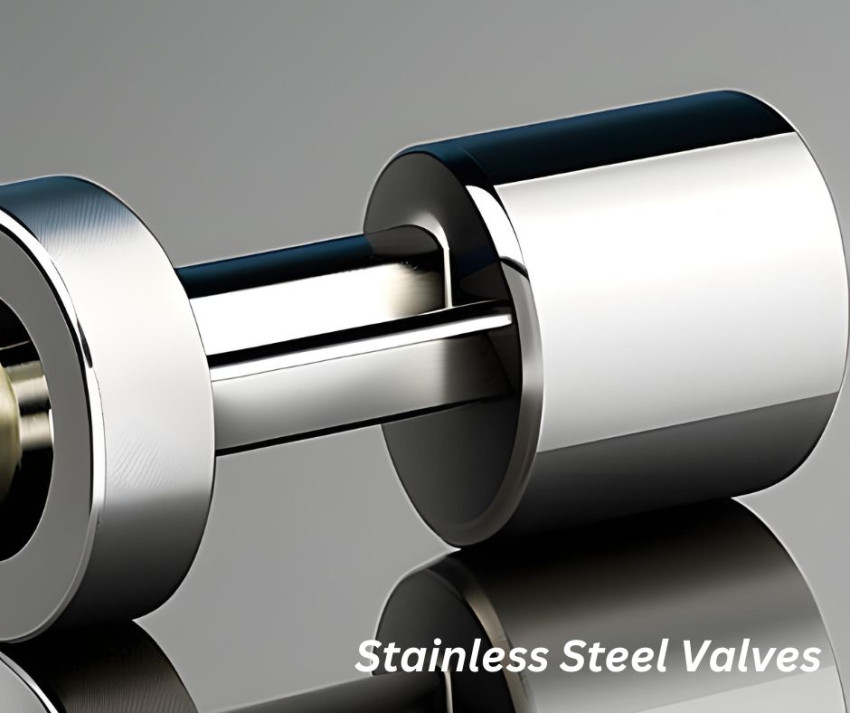
Introduction:
In the realm of industrial applications, the importance of selecting the right components cannot be overstated. Among the critical elements that contribute to efficient and reliable operations, valves play a pivotal role. Choosing the appropriate valve material is essential to ensure long-lasting performance and overall system efficiency. In this blog post, we will explore the advantages of using stainless steel valves in industrial applications and how they can unlock efficiency and durability.
Advantages Stainless Steel Valves:
Corrosion Resistance:-
One of the primary reasons why stainless steel valves are preferred in industrial settings is their exceptional resistance to corrosion. Industrial environments often expose valves to harsh conditions, including corrosive chemicals, high temperatures, and humidity. Unlike other materials, stainless steel is highly resistant to rust, oxidation, and chemical reactions, making it an ideal choice for withstanding corrosive elements over extended periods. By utilizing stainless steel valves, industries can minimize the risk of valve failure due to corrosion and ensure a reliable and efficient operation.
Strength and Durability:-
Stainless steel valves offer impressive strength and durability, making them suitable for demanding industrial applications. Their robust construction enables them to withstand high pressure, heavy loads, and repetitive operations without compromising performance. The inherent strength of stainless steel ensures that valves can maintain their structural integrity, even in challenging conditions. With their durability, stainless steel valves reduce the need for frequent maintenance and replacement, resulting in cost savings and increased operational efficiency.
High Temperature Resistance:-
Industrial processes often involve high temperatures that can pose significant challenges to valve materials. Stainless steel valves excel in their ability to withstand extreme temperatures, making them suitable for applications where heat resistance is crucial. Whether in power plants, chemical processing, or oil and gas industries, stainless steel valves can reliably handle elevated temperatures without deformation or degradation. This high-temperature resistance not only contributes to the efficiency of the overall system but also enhances the safety and longevity of the valves.
Hygienic Properties:-
In industries such as food and beverage, pharmaceuticals, and biotechnology, maintaining hygiene is paramount. Stainless steel valves possess inherent hygienic properties that make them an excellent choice for such applications. The smooth surface of stainless steel is non-porous, allowing for easy cleaning and preventing the accumulation of bacteria, contaminants, or residual materials. This reduces the risk of product contamination and ensures compliance with stringent sanitary standards. By utilizing stainless steel valves, industries can safeguard the quality of their processes and products while maintaining optimal efficiency.
Compatibility and Versatility:-
Stainless steel valves offer excellent compatibility with a wide range of fluids, gasses, and chemicals, further enhancing their utility in industrial applications. Their resistance to corrosion and chemical reactions allows them to handle various substances without degradation or contamination. Stainless steel valves can be used in diverse industries, including oil and gas, chemical processing, water treatment, pharmaceuticals, and more. Their versatility and compatibility make them a reliable choice for a broad spectrum of industrial applications.
Application Stainless Steel Valves:
Oil and Gas:-
Stainless steel valves are highly suitable for use in oil and gas exploration and production as they can withstand high temperatures and pressures. They offer superior protection against corrosion from aggressive materials used in extraction and drilling.
Chemical Manufacturing:-
The chemical manufacturing industry requires the use of materials that can resist aggressive chemicals and corrosive substances. Stainless steel valves are resistant to corrosion and have a longer lifespan than other materials like brass or cast iron.
Food Processing:-
Stainless steel valves are an ideal choice for the food processing industry due to their hygienic properties and resistance to corrosion. Their smooth surface means they are easy to clean, ensuring optimal hygiene levels are maintained.
Medical Industry:-
The medical industry requires materials that are hygienic, non-toxic, and resistant to corrosion. Stainless steel valves provide these properties, making them suitable for use in the medical industry.
Water Treatment:-
Stainless steel valves are ideal for use in water treatment applications due to their resistance to corrosion from chlorine and other chemical treatments used in water purification.
Conclusion:
In the realm of industrial applications, the selection of the right valve material is crucial for efficient and durable operations. Stainless steel valves offer numerous advantages that contribute to their widespread use in various industries. Their exceptional corrosion resistance, strength, high-temperature resistance, hygienic properties, and compatibility make them an ideal choice for demanding applications. By opting for stainless steel valves, industries can unlock efficiency, durability, and longevity while maintaining the highest standards of performance and reliability.




